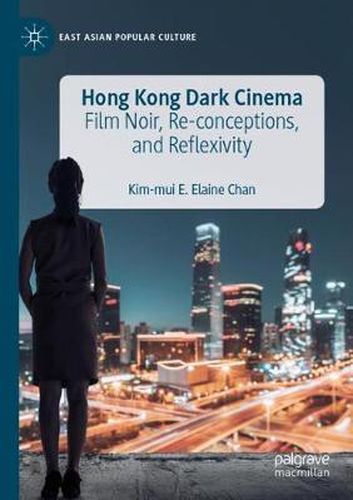Readings Newsletter
Become a Readings Member to make your shopping experience even easier.
Sign in or sign up for free!
You’re not far away from qualifying for FREE standard shipping within Australia
You’ve qualified for FREE standard shipping within Australia
The cart is loading…






This title is printed to order. This book may have been self-published. If so, we cannot guarantee the quality of the content. In the main most books will have gone through the editing process however some may not. We therefore suggest that you be aware of this before ordering this book. If in doubt check either the author or publisher’s details as we are unable to accept any returns unless they are faulty. Please contact us if you have any questions.
This book is a scholarly investigation of the historical development and contemporary transformation of film noir in today’s Hong Kong. Focusing on the evolvement of cinematic narratives, aesthetics, and techniques, the author balances a deep reading of the multiple filmic plots with a discussion of the cinematic portrayals of gender, romance, identities and power relations. Nuancing the prototypical cinematic form and tragic sense of classical film noir, the recent Hong Kong cinema turns around the classical generic role of film noir at the turn of the century to convey very different messages-joy, hope or love. This book examines how the mainstream cinema, or pre-and-post-Hong Kong cinema in particular, applies a peculiar strategy that makes rooms for the audience to enjoy a pleasure-giving process of reflexivity and also critique the mainstream ideology. With new analytical approaches and angles, this book breaks new ground in offering transcultural and cross-genre analyses on the cinema and its impact in local and international markets.
This book is the first major scholarly investigation of the historical development and contemporary transformation of film noir in today’s Hong Kong. Focusing on the evolvement of cinematic narratives, aesthetics, and techniques, the author balances a deep reading of the multiple filmic plots with a refreshing discussion of the cinematic portrayals of gender, romance, identities and power relations. This book also revisits conceptual categories developed by Foucault, Lacan, Derrida and Butler.
$9.00 standard shipping within Australia
FREE standard shipping within Australia for orders over $100.00
Express & International shipping calculated at checkout
This title is printed to order. This book may have been self-published. If so, we cannot guarantee the quality of the content. In the main most books will have gone through the editing process however some may not. We therefore suggest that you be aware of this before ordering this book. If in doubt check either the author or publisher’s details as we are unable to accept any returns unless they are faulty. Please contact us if you have any questions.
This book is a scholarly investigation of the historical development and contemporary transformation of film noir in today’s Hong Kong. Focusing on the evolvement of cinematic narratives, aesthetics, and techniques, the author balances a deep reading of the multiple filmic plots with a discussion of the cinematic portrayals of gender, romance, identities and power relations. Nuancing the prototypical cinematic form and tragic sense of classical film noir, the recent Hong Kong cinema turns around the classical generic role of film noir at the turn of the century to convey very different messages-joy, hope or love. This book examines how the mainstream cinema, or pre-and-post-Hong Kong cinema in particular, applies a peculiar strategy that makes rooms for the audience to enjoy a pleasure-giving process of reflexivity and also critique the mainstream ideology. With new analytical approaches and angles, this book breaks new ground in offering transcultural and cross-genre analyses on the cinema and its impact in local and international markets.
This book is the first major scholarly investigation of the historical development and contemporary transformation of film noir in today’s Hong Kong. Focusing on the evolvement of cinematic narratives, aesthetics, and techniques, the author balances a deep reading of the multiple filmic plots with a refreshing discussion of the cinematic portrayals of gender, romance, identities and power relations. This book also revisits conceptual categories developed by Foucault, Lacan, Derrida and Butler.